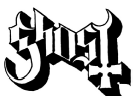The Swedish Patent and Market Court (PMD) ruled out a likelihood of confusion between two figurative trademarks for “ghost” and “GHOST VODKA” based on their mere visual differences. In fact, the Court concluded that the sigs were dissimilar, without even analyzing the signs on a phonetical or conceptual level. A good outcome for the defendants but somewhat worrying for rightholders who seek to enforce their rights in Sweden.
As a short background to this (legally) odd ruling, the Swedish rock band Ghost brought an action for infringement against the UK company Ghost Drinks Ltd and its Swedish distributor, seeking to prohibit the use of the sign GHOST VODKA (fig.) for vodka. The EUTM relied on was registered for alcoholic beverages (except beers) in class 33.
 v
v 
In its judgment, the Court reiterates the principle that multiple factors must be considered in the assessment. By contrast, however, the Courts conclusion relies on the visual comparison only. In that regard, the Court finds that the earlier EUTM is particularly figurative in its design and that consumers “with some difficulty” can perceive the word ghost. The contested sign, on the other hand, has a figurative skull and an ordinary typeface which significantly differs from the earlier trademark’s design. According to the Court, the average consumer would notice the differences without a closer inspection.
From this the Court concludes that there is no similarity between the signs and, in addition, that consumers would not believe that the respective goods come from the same or economically linked undertakings. On that basis, the Court rejects the plaintiff’s action.
The Court’s reasoning is not very convincing, to say the least. Aside from the fact that it did not provide an adequate statement of reasons, since no phonetical or conceptual comparison was made, its conclusion on the dissimilarity of the signs appears to be erroneous. Indeed, the differences are evident on a visual level, although a “gothic aura” is present in both of them. In any event, the fact remains that the signs are identical from a phonetical and conceptual perspective, or at least highly similar in case the descriptive element “VODKA” is taken into account. If the Court had the opinion that the average consumer would fail to interpret the figurative skull as the letter “O”, and thus fail to perceive the defendants’ mark as “GHOST VODKA”, it should have made a clear statement to that effect.
The judgment reminds us that it not sufficient to just reiterate the importance of a global assessment, in which all relevant factors must be evaluated. As the Court failed to thoroughly examine the similarity of the signs at issue, which most likely constitutes an error of law as such (in that connection, see judgment of 16 June 2011, C‑317/10 P, UNIWEB and UniCredit Wealth Management, para. 45 and the case law cited), other factors such as the identity of the goods and the distinctiveness of “ghost” became irrelevant for the outcome.
Finally, it is interesting to note that the Court did not compare the defendants’ goods (i.e. vodka) with the goods covered by the earlier registration (i.e. alcoholic beverages). Instead, the Court referred to the goods actually provided by the plaintiff (i.e. gin) which, according to the Court, are “at least similar” to vodka. It is not clear why the Court restricted the scope of the earlier sign ex officio (a non-use counterclaim or defence was not raised by the defendants).
The judgment has not been appealed to the Patent and Market Court of Appeals.
_____________________________
To make sure you do not miss out on regular updates from the Kluwer Trademark Blog, please subscribe here.


